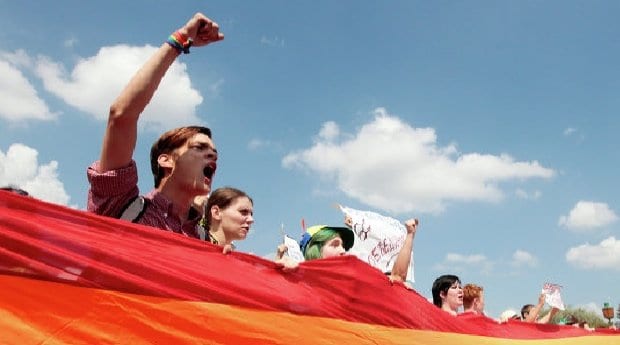A new Amnesty International (AI) report says the European Union (EU) and many of its member states do not recognize perceived sexual orientation or gender identity as the basis of hate crimes in legislation and criticizes current EU standards for tackling homophobic and transphobic violence as inadequate.
According to the 16-page report, “Because of Who I Am: Homophobia, Transphobia and Hate Crimes in Europe,” 2008 EU legislation lists attacks based on race and xenophobia as hate crimes but not those based on sexual orientation and gender identity.
“The EU and its member states cannot fulfill their obligations to combat discrimination without adopting appropriate measures against all forms of hate-motivated violence,” says Marco Perolini, Amnesty’s expert on discrimination in Europe and Central Asia. “The existing double standards convey the idea that some forms of violence deserve less attention and less protection than others. That’s unacceptable for a European Union that prides itself on promoting equality and inclusion,” he says.
Even as the situation for LGBT people has improved in some European countries, the report states, many continue to hide their sexual orientation or gender identity from family, friends and work colleagues.
According to a European Union Agency for Fundamental Rights (FRA) survey conducted across the region, almost 70 percent of LGBT respondents had “always or often disguised their sexual orientation or gender identity at school.”
The FRA statistics also found that one in four LGBT people in the region had been attacked or threatened.
Moreover, the Organization for Security and Co-operation in Europe (OSCE) found that while 13 EU countries collect “some kind of data” on homophobic hate crimes, only five gather information on transphobic hate crimes.
“There is little support for victims, who in turn may be unwilling to report the crimes to police,” the report says.
Activists are concerned that the worrisome statistics could get worse as the EU takes in more socially conservative states.
The report notes that current EU members Germany, Italy, the Czech Republic, Bulgaria and Latvia, as well as those aspiring to join — including Ukraine, Moldova, Turkey, Macedonia and Montenegro — do not have adequate laws and protections in place.
In February last year, a young trans woman was beaten and called a faggot in a club in Catania, Italy, but gaps in the country’s criminal legislation mean that the transphobic hate motivation will not explicitly be taken into account in the prosecution of the crime or sentencing, the report states.
In Greece, a gay man says police asked him what a homophobic attack was when he reported that he had been punched, kicked and targeted with homophobic slurs.


 Why you can trust Xtra
Why you can trust Xtra


